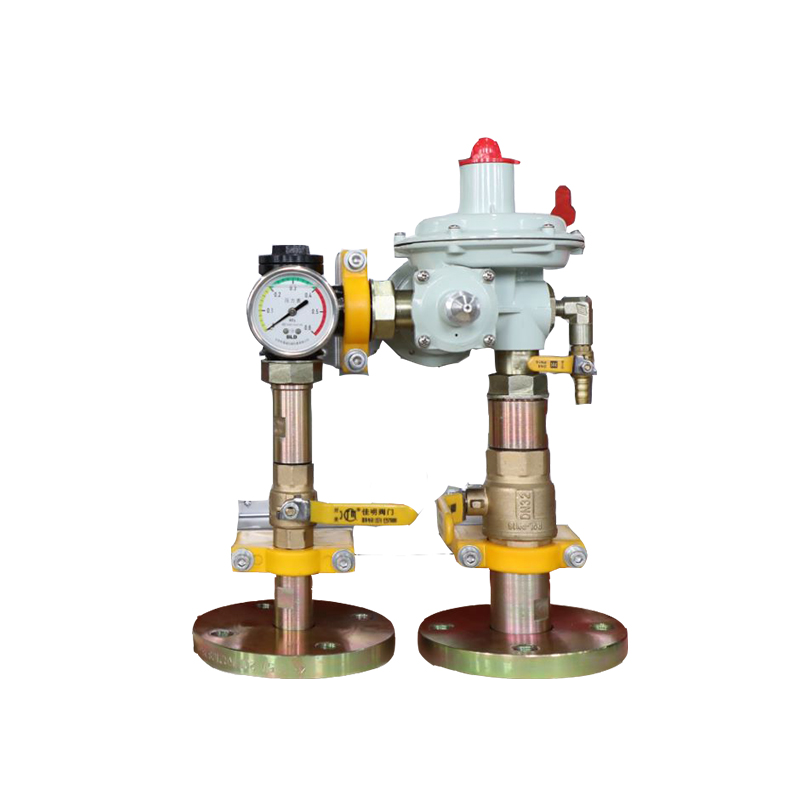
Dec . 16, 2024 13:53
Back to list
Electric Regulator Valve for Enhanced Control and Efficiency in Electrical Systems
The Importance of Electrical Regulating Valves in Modern Industry
In today's technologically advanced world, the efficiency and reliability of various systems hinge on the seamless integration of electrical components. One such critical component is the electrical regulating valve, commonly referred to as صمام تنظيم كهربائي in Arabic. These valves are essential in a variety of applications, particularly in industries such as oil and gas, water treatment, and chemical processing.
What is an Electrical Regulating Valve?
An electrical regulating valve is a device that controls the flow of liquids or gases in a system. It utilizes electric signals to adjust the valve position, thereby maintaining the desired flow rate and pressure levels. The ability to precisely regulate these parameters is crucial for ensuring safety, efficiency, and optimal performance in industrial processes.
How Do They Work?
Electrical regulating valves function by receiving signals from a control system, which can be either manual or automated. The control system interprets data from various sensors within the system, such as pressure sensors or flow meters, and sends a signal to the valve to open or close as needed. This dynamic adjustment allows for real-time control over the process, ensuring that conditions remain within specified limits.
The internal mechanism typically consists of an actuator, which is powered by an electric motor. This actuator operates the valve mechanism—whether it is a globe valve, ball valve, or another type—to achieve the desired flow rate. The fast response time of electronic control systems means that these valves can quickly adapt to shifting demands, making them invaluable in processes that require precision.
Applications in Various Industries
1. Oil and Gas In the oil and gas sector, electrical regulating valves manage the flow of hydrocarbons through pipelines and processing facilities. Accurate regulation is vital, as it helps prevent leaks and explosions, while also optimizing production efficiency.
صمام تنظيم كهربائي

2. Water Treatment Water treatment plants rely on these valves to control the flow of water at various stages of treatment. Whether regulating the inflow of raw water or adjusting the chemical dosing process, electrical regulating valves ensure that treatment standards are met.
3. Chemical Processing The chemical industry often deals with hazardous substances, necessitating stringent controls on flow and pressure. Electrical regulating valves provide the precise control needed to maintain safe conditions and enhance the efficiency of chemical reactions.
Advantages of Using Electrical Regulating Valves
One significant advantage of electrical regulating valves is their ability to be integrated into automated systems. This integration allows for sophisticated control strategies, such as PID (Proportional-Integral-Derivative) control, which optimizes valve performance and improves overall system efficiency.
Additionally, these valves often feature digital interfaces that simplify monitoring and diagnostics. This capability enables operators to perform remote assessments and interventions, reducing downtime and operational costs.
Conclusion
The role of electrical regulating valves in modern industrial applications cannot be overstated. Their ability to provide precision control in critical processes qualifies them as indispensable components in various sectors. As industries continue to advance towards automation and more complex systems, the demand for reliable and efficient electrical regulating valves will undoubtedly rise.
In summary, electrical regulating valves, or صمام تنظيم كهربائي, are pivotal in ensuring the safety, efficiency, and effectiveness of numerous industrial processes. Investing in high-quality regulating valves and integrating them with advanced control systems can lead to significant improvements in operational performance, underscoring their importance in the future of industrial automation.
Next:
Latest news
-
Safety Valve Spring-Loaded Design Overpressure ProtectionNewsJul.25,2025
-
Precision Voltage Regulator AC5 Accuracy Grade PerformanceNewsJul.25,2025
-
Natural Gas Pressure Regulating Skid Industrial Pipeline ApplicationsNewsJul.25,2025
-
Natural Gas Filter Stainless Steel Mesh Element DesignNewsJul.25,2025
-
Gas Pressure Regulator Valve Direct-Acting Spring-Loaded DesignNewsJul.25,2025
-
Decompression Equipment Multi-Stage Heat Exchange System DesignNewsJul.25,2025

